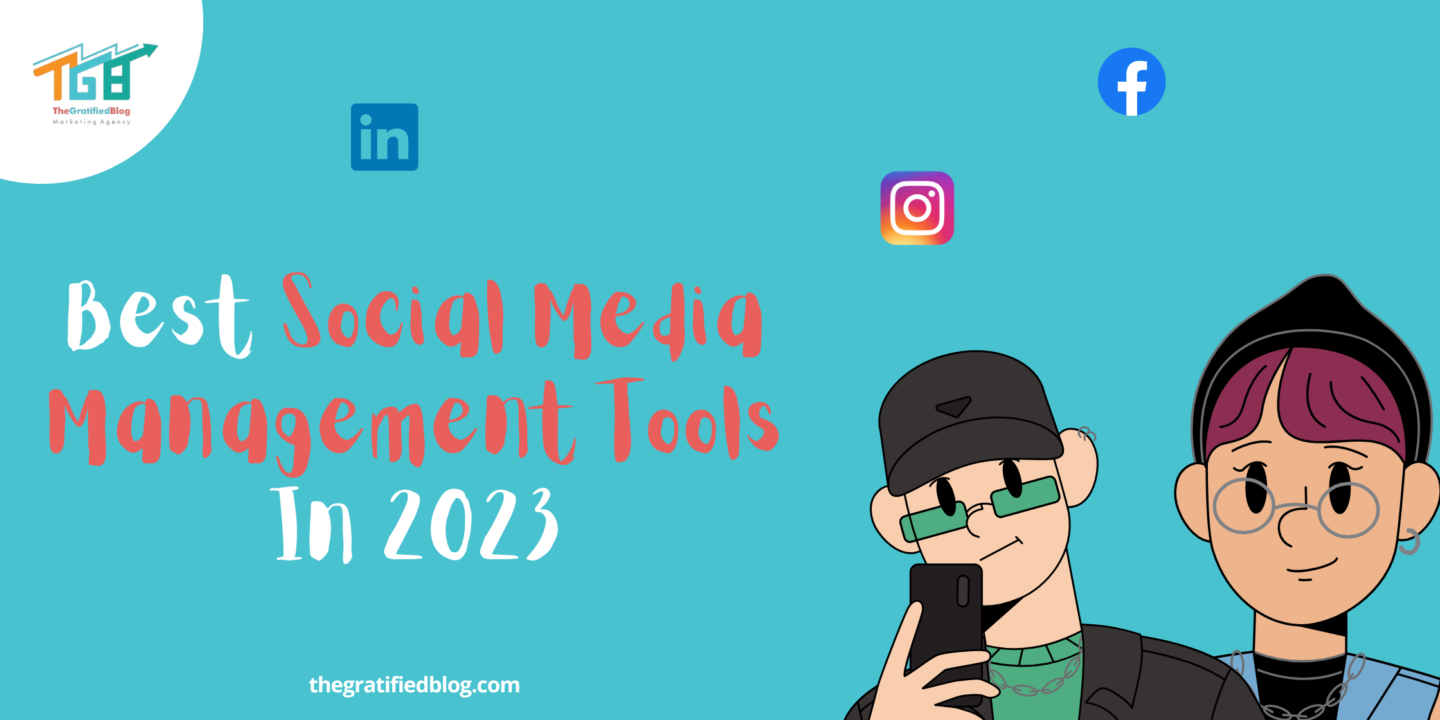
In the rapidly evolving digital landscape of 2023, social media has become integral to every successful business’s marketing strategy. Organizations are turning to cutting-edge to manage and maximize their social media presence.
These tools empower businesses to streamline their social media activities, automate processes, and enhance engagement with their target audience.
This article will explore the best social media management tools available in 2023 that are revolutionizing how businesses connect and interact with their customers online.
From comprehensive analytics to scheduling and publishing features, these tools offer a range of functionalities designed to optimize social media campaigns and drive tangible results. So, let’s begin:
What Are Social Media Management Tools?
Social media management tools are software applications or platforms that assist individuals or businesses in managing and organizing their social media presence.
These tools provide a range of features and functionalities to streamline social media marketing efforts, improve efficiency, and enhance overall performance on various social media platforms.
Benefits Of Social Media Management Tools

There are numerous benefits for individuals and businesses looking to manage their online presence effectively. Some key advantages of using these tools include
Time-saving.
Social media management tools enable users to schedule posts in advance, saving time and effort.
Users can plan their content strategy, create posts, and prepare them to be published optimally, allowing for consistent and timely updates without manual posting.
These tools offer a centralized dashboard where users can manage multiple social media accounts simultaneously, making them the best tools for various accounts.
This eliminates the need to log in and out of multiple platforms, streamlining the process and saving time. These tools often provide content curation, analytics, and engagement tracking features.
Users can quickly discover and share relevant content, measure the performance of their posts, and monitor audience engagement—all within a single platform. With these capabilities, These tools facilitate collaboration among team members.
Multiple users can access the platform, assign tasks, and coordinate their efforts, resulting in more efficient teamwork and cohesive social media campaigns.
Streamlined workflow:
These tools provide a centralized platform to manage multiple social media accounts and platforms simultaneously.
This streamlines the workflow by eliminating the need to log in and out of different accounts and platforms, making monitoring and responding to engagements easier.
These tools often offer scheduling features that allow users to plan and publish content across various platforms in advance. This saves time and effort by automating the process ensuring a consistent presence on social media.
Collaboration is also simplified through these tools, as team members can access and work on social media accounts simultaneously, with the ability to assign tasks, track progress, and communicate within the platform.
These tools often integrate with other marketing and customer relationship management (CRM) systems, enabling seamless data synchronization and enhancing overall efficiency.
With the ability to monitor and engage with multiple accounts in one place, social media management tools contribute to improved customer service and brand reputation.
Businesses can promptly respond to inquiries, comments, and messages, fostering positive relationships with their audience.
Content planning and organization
Content planning and organization are essential aspects of effective social media management, and tools offer valuable features to support these tasks.
These tools often include content calendars that enable users to plan their social media posts, ensuring a consistent and well-thought-out content strategy. With content libraries, users can store and access their media assets, such as images and videos, making it easy to find and reuse content whenever needed.
Collaborative features provided by these tools foster teamwork and streamline content creation processes. Multiple team members can collaborate on content creation, reviewing, and editing posts before publication.
That promotes a cohesive brand voice and ensures content quality and accuracy. This allows users to assign tasks and deadlines, ensuring content creation efforts stay organized and on track.
Analytics and Reporting
Analytics and reporting tools are crucial in evaluating social media performance, offering a comprehensive range of features to extract valuable insights.
These tools empower users to track essential metrics like engagement, reach, impressions, and follower growth, enabling them to gauge the effectiveness of their social media strategies.
Businesses can make informed, data-driven decisions and optimize their future campaigns by analyzing this data. The robust analytics provided by these tools offer a deeper understanding of audience behavior, allowing users to identify trends, preferences, and patterns.
This knowledge assists in tailoring content to better resonate with the target audience, resulting in increased engagement and improved reach.
The reporting capabilities of these tools enable users to present their findings in a visually appealing and easily understandable format, facilitating data communication within the organization.
Social listening and monitoring
Social listening and monitoring have become indispensable for businesses in today’s digital landscape.
With many social media management tools available, tracking mentions, keywords, and hashtags related to a brand or industry has become more accessible.
These tools enable businesses to monitor their brand reputation, gain insights into audience sentiment, and identify opportunities for engagement and conversation. By utilizing social listening and monitoring features, companies can proactively address customer concerns and respond to feedback promptly.
They can track how their brand is perceived and take necessary steps to maintain a positive image. Moreover, analyzing audience sentiment helps understand consumer preferences and tailor marketing strategies accordingly.
Social listening allows businesses to identify emerging trends and stay updated with industry discussions.
By tracking relevant hashtags and keywords, companies can spot new opportunities, join conversations, and effectively engage with their target audience. This valuable data can guide decision-making processes and drive business growth.
Collaboration and team management
For businesses or teams managing social media accounts, these tools facilitate collaboration and team management.
They offer features such as user permissions, task assignments, content approval workflows, and internal communication tools, ensuring smooth coordination among team members.
By granting different user permissions, these tools allow team members to access and contribute to specific areas of the social media accounts based on their roles and responsibilities.
This ensures that each team member has the appropriate access and control level, safeguarding the accounts’ integrity.
Task assignment functionalities enable managers to allocate specific responsibilities to team members, ensuring all tasks are completed efficiently and on time. These tools often provide task tracking and progress monitoring features, allowing managers to oversee the status of assigned tasks.
Content approval workflows are crucial for maintaining consistency and quality in social media posts. These tools enable team members to submit their content for review, and managers can quickly approve or provide feedback on the proposed content.
This streamlines the content creation process and ensures that only approved content is published.
Customer relationship management (CRM) integration
Customer relationship management (CRM) integration is pivotal in optimizing customer interactions and engagements across various social media platforms.
By seamlessly integrating with CRM systems, businesses can provide personalized customer support, ensuring a more satisfactory experience. This integration makes tracking customer inquiries more efficient, enabling enterprises to respond promptly and effectively.
It facilitates the maintenance of a comprehensive view of customer interactions, allowing businesses to gain valuable insights into customer preferences, needs, and behaviors.
CRM integration empowers businesses to streamline customer service processes by centralizing customer data from social media platforms into a unified system.
This consolidation eliminates the need for manual data entry and reduces the chances of errors or duplicated information.
It also enables businesses to track and analyze customer interactions and engagements in accurate, timely, data-driven decisions, improving customer satisfaction.
Competitive analysis
Competitive analysis is a crucial aspect of social media management tools. These tools offer features enabling users to monitor their competitors’ social media activities closely.
Businesses gain valuable insights into their competitors’ strategies, allowing them to stay updated with the latest trends and make informed decisions.
These tools enable benchmarking performance against industry peers, clearly understanding where a company stands about its competition.
By tracking competitors’ social media activities, businesses can identify emerging trends, popular content formats, and successful marketing campaigns.
This knowledge helps them adapt and refine their social media strategies to stay competitive. By understanding the tactics employed by their competitors, businesses can make proactive adjustments to improve their performance and gain a competitive edge.
It simplifies competitive analysis by providing comprehensive analytics and reporting features.
Users can track metrics such as engagement rates, follower growth, and content reach for their competitors, allowing for a detailed performance comparison.
This information helps businesses identify gaps and areas of improvement and capitalize on successful strategies their competitors implement.
Ad management
Some social media management tools offer ad management features, allowing users to create, launch, and track advertising campaigns across multiple platforms.
This streamlines social media advertising, making it easier to target specific audiences and measure campaign effectiveness. With these tools, advertisers can conveniently design captivating ads tailored to specific demographics, interests, or behaviors.
This customization ensures that the right message reaches the right people at the right time, maximizing the chances of engagement and conversions.
These tools offer comprehensive tracking and analytics capabilities, allowing users to monitor key performance indicators and make data-driven decisions to optimize their campaigns.
The ad management features in social media management tools offer a centralized hub to oversee multiple advertising campaigns simultaneously.
That saves time and effort by eliminating the need to log in to individual platforms separately. The tools often provide intuitive dashboards that display real-time metrics, making it convenient to track performance, measure ROI, and make adjustments as needed.
Best Social Media Management Tools
Several excellent free tools for social media management can help you streamline your social media activities and enhance your online presence. Here are some of the best options:
Hootsuite
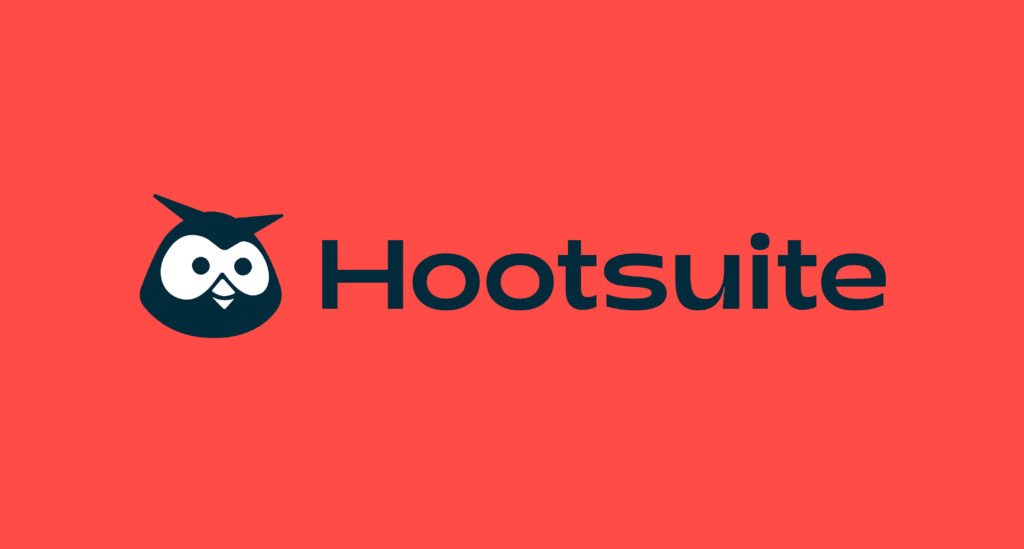
Hootsuite is a popular social media management platform that allows you to manage multiple social media accounts, schedule posts, monitor conversations, and measure performance across various platforms.
Sprout Social

Sprout Social is a comprehensive social media management tool with features for scheduling and publishing content, social listening, analytics, and team collaboration. It also offers an intelligent inbox to manage all your social media messages in one place.
Buffer

Buffer is known for its user-friendly interface and intuitive scheduling features. It supports various social media platforms and offers content planning, publishing, and analytics capabilities. Buffer also provides a browser extension for easy content curation.
Later
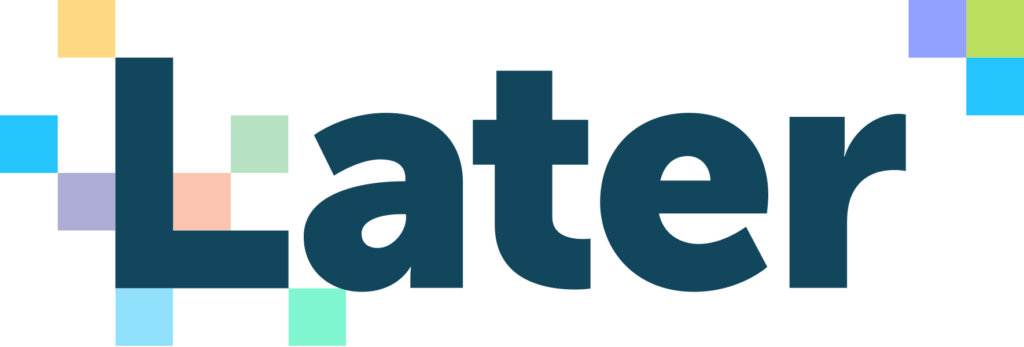
Later, it focuses on visual social media platforms, particularly Instagram. It offers features for scheduling and organizing Instagram posts, including visual planning, hashtag suggestions, and analytics. It also supports other platforms like Twitter, Facebook, and Pinterest.
Agorapulse
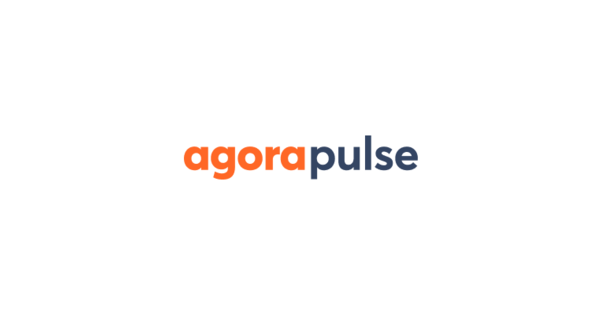
Agorapulse is a social media management tool that covers scheduling, publishing, and monitoring across major platforms. It includes advanced features like social media CRM, social listening, and detailed analytics to measure your social media performance.
CoSchedule

CoSchedule is an all-in-one marketing calendar that allows you to manage social media, content, and other marketing activities in one place. It provides features for scheduling social media posts, organizing campaigns, and collaborating with team members.
Falcon.io
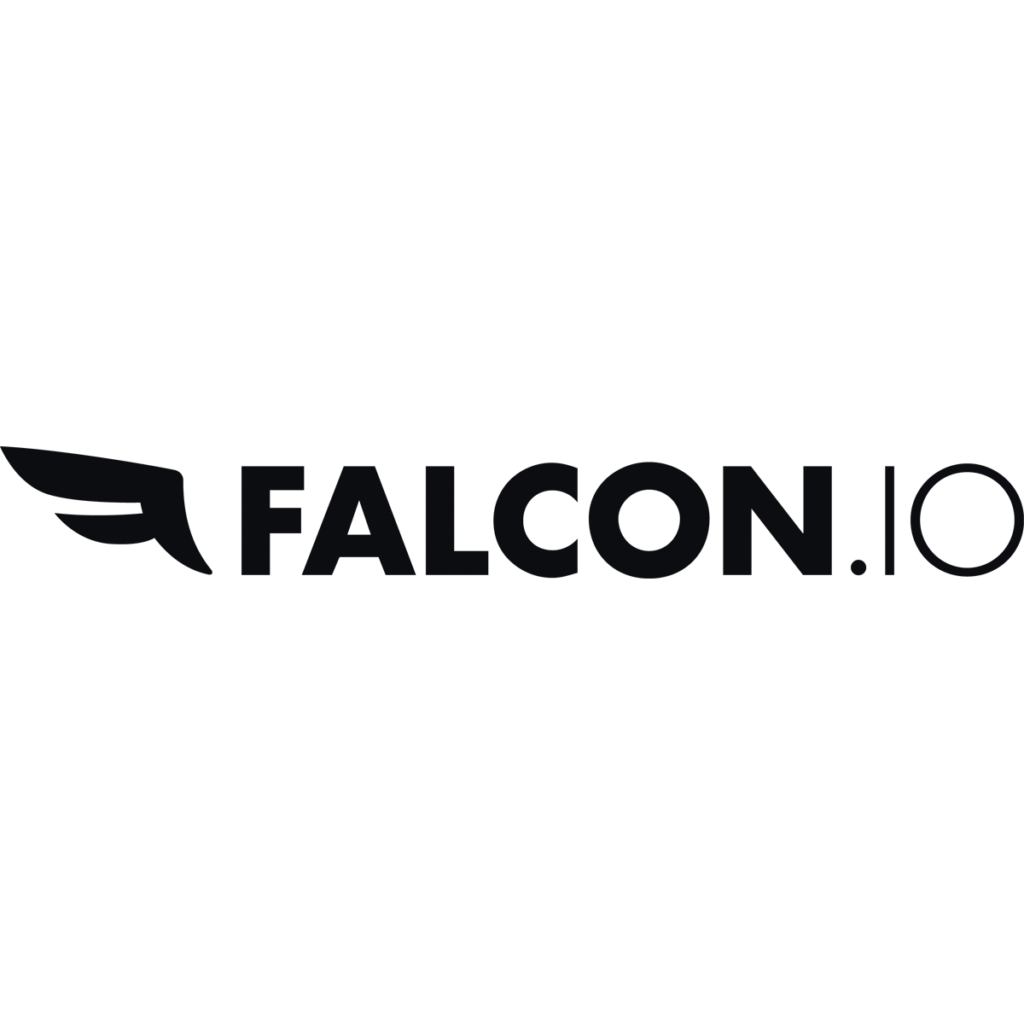
Falcon.io offers a comprehensive suite of social media management tools, including content publishing, social listening, engagement, and analytics. It also provides features for social advertising and customer data management.
Social Champ

Social Champ is a social media management tool that helps streamline scheduling and content flow across nine significant platforms, including Meta, Instagram, X, YouTube, Pinterest, Google Business Profile, LinkedIn, TikTok, and Mastodon. It allows you to create, schedule, publish, and monitor posts using a unified dashboard. It’s also launching a Social Listening feature that will enable users to track brand mentions and engage with their audience in real time.
How To Choose The Right Social Media Management Tools
Choosing the proper social media management tools is essential for businesses looking to manage their social media accounts effectively.
With so many options available in the market, it can be overwhelming to choose the right tool. Here are some factors to consider:
Define Your Social Media Management Goals

Before choosing any social media management tool, it’s crucial to identify your goals and objectives. Determine what you want to achieve with your social media presence, such as increasing brand awareness, driving website traffic, or engaging with your target audience.
Clear goals will help you select a tool that aligns with your needs.
Assess The Features And Functionality

Look for social media management tools that offer the required features and functionality. Some standard features include scheduling posts, content creation and curation, analytics and reporting, team collaboration, social listening, and customer engagement.
Consider your workflow and the tasks to streamline and prioritize tools that provide those capabilities.
Consider Scalability And Growth

As your social media presence grows, you’ll likely need to manage multiple accounts and expand your efforts across different platforms.
Choose a tool that can accommodate scalability and manage multiple social media profiles from a single dashboard. It should also support integration with various social media platforms to ensure flexibility and adaptability as your needs evolve.
Evaluate Ease Of Use And User Interface

Social media management tools should be user-friendly and have an intuitive interface. Consider the learning curve associated with each tool and whether it provides adequate documentation, tutorials, or customer support to help you navigate the platform.
A tool that is easy to use will save you time and make the management process more efficient.
Review Pricing And Budget

Pricing structures for social media management tools can vary significantly. Evaluate your budget and compare the pricing plans of different tools.
Consider the number of social media profiles you need to manage, the size of your team, and any additional features or services included in the pricing tiers.
It’s essential to strike a balance between your budget and the value the tool provides to ensure a good return on investment.
The Best Free Social Media Management Tools
Several excellent free social media management tools can help you schedule posts, analyze performance, and manage your social media accounts. Here are some of the best ones:
TweetDeck
TweetDeck is a powerful and free tool designed for effective Twitter account management. With its customizable dashboard, you can effortlessly oversee multiple Twitter accounts, schedule tweets, and closely monitor hashtags and mentions.
It streamlines your social media workflow, enabling seamless engagement and content scheduling. Whether you’re a social media manager or an avid Twitter user, TweetDeck empowers you to stay organized and in control.
Its user-friendly interface makes navigating and managing various aspects of your Twitter presence easy.
Take advantage of this invaluable resource to enhance your Twitter experience and maximize your social media impact.
Stay connected, stay engaged, and make the most of your Twitter interactions with TweetDeck. #TweetDeck #SocialMediaManagement
Socialoomph
Socialoomph offers a free plan with limited features but still provides value. It allows you to schedule posts, track keywords, manage multiple Twitter accounts, and monitor mentions and retweets.
The scheduling feature lets you plan your posts, ensuring consistent engagement with your audience.
Tracking keywords helps you stay informed about relevant conversations and trends. Managing multiple Twitter accounts simplifies social media management for individuals or businesses with various profiles.
The mention and retweet monitoring feature enables you to keep tabs on how your content is being shared and talked about.
While the free plan may have limitations, Socialoomph remains a valuable tool for those seeking basic social media management capabilities.
Canva
Canva is a powerful tool for creating captivating social media posts despite needing to be a dedicated social media management tool.
With its many templates, stock photos, icons, and editing tools, Canva empowers users to design visually stunning graphics.
Whether you’re an individual or a business, the accessible version of Canvas grants access to most features, making it an ideal choice for crafting engaging social media content.
Its user-friendly interface allows for seamless navigation and customization, ensuring your posts stand out online.
By harnessing Canvas resources, you can effortlessly enhance the visual appeal of your social media presence and leave a lasting impression on your audience.
Elevate your content creation game with Canva’s diverse options and make your social media posts eye-catching.
Zoho Social is a powerful social media management tool catering to individuals and small businesses. One user can efficiently manage up to three social media profiles with its free plan.
This includes popular platforms such as Facebook, Twitter, and Instagram. Its notable features are post-scheduling, enabling users to plan and automate content dissemination.
Zoho Social provides social media listening capabilities, allowing users to monitor mentions and engage with their audience effectively.
The tool offers basic analytics, providing insights into key metrics like engagement and reach. Zoho Social is a comprehensive solution for users seeking to streamline their social media presence.
Final Thought:
This article provides you with a clear understanding of the importance of social media management tools.
By utilizing these tools, you can effectively manage and optimize your social media presence. Now that you comprehend their significance, it is wise to select the best social media management tools for agencies that have the potential to foster the growth of your business.
Such a tool will assist you in streamlining your social media strategies, schedule posts, analyzing performance metrics, and engaging with your audience more efficiently.
Make an informed decision to maximize the benefits of social media management tools and enhance your business’s success.
If you have any questions regarding this topic, please leave them in the comment section. We will be happy to answer you.
Thanks for reading 🙂



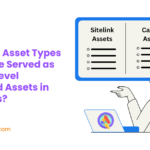


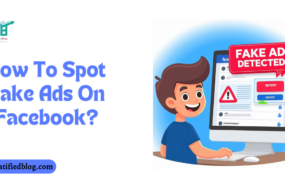

No Comments